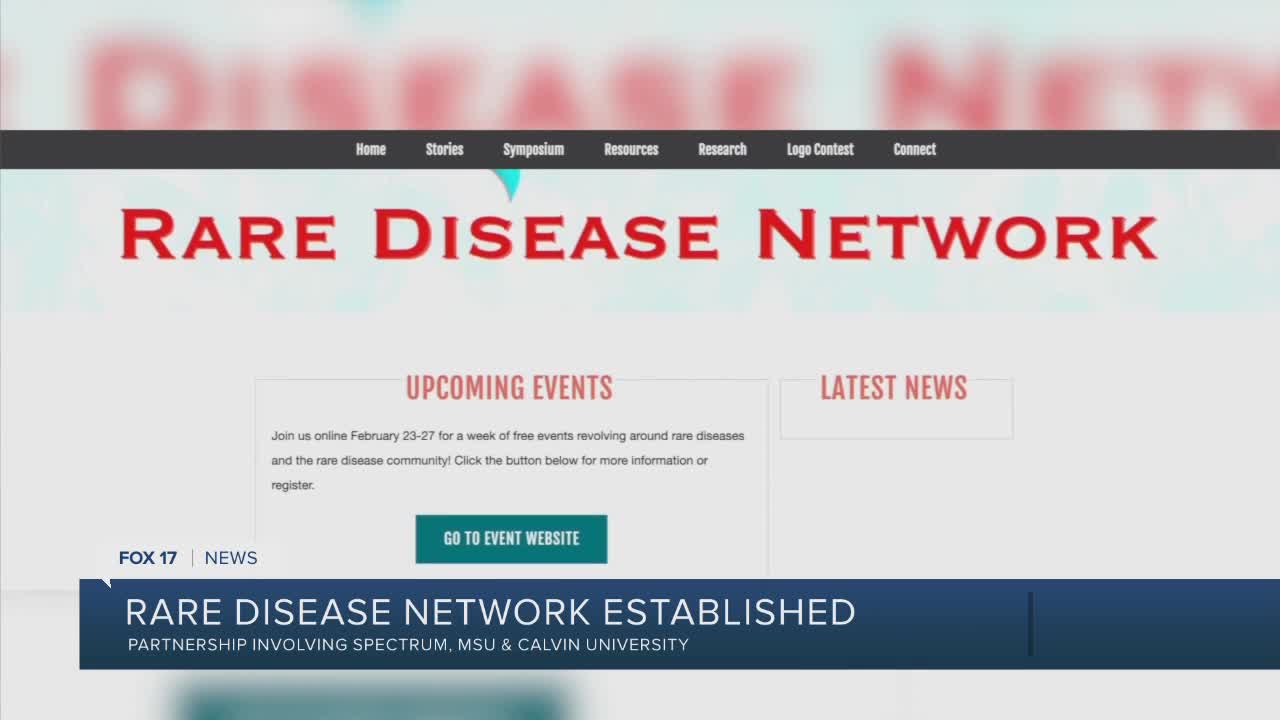GRAND RAPIDS, Mich. — Spectrum Health, Michigan State University College of Human Medicine, and Calvin University are launching a new resource for people impacted by rare diseases.
It’s called the Rare Disease Network.
“There are some common things that we know families deal with that we try to target our work towards,” said Dr. Caleb Bupp, Division Chief of Medical Genetics and Genomics for Spectrum Health.
The website includes stories, resources, and research for people impacted by one.
“Social media and things have made connecting easier than ever before, but a lot of rare disorders don’t have something [ i.e. resource groups ] and that’s why we’ve tried to make this as big of a tent as possible,” said Bupp. “Go after the more common things, what things are hard with rare disease; It’s working with insurance, it’s school issues.”
Bupp says Shannon Bennett, a Rockford mom, approached Spectrum with the idea four years ago and it has since grown to this year’s outreach.
In addition to the network, Spectrum Health, MSU, and Calvin will host the first week-long series of events in West Michigan aimed at understanding rare diseases.
“There weren't other families that I could call on that had been through a rare diagnosis,” said Bennett. “Maybe weren't dealing with the same condition, but we're dealing with a lot of this, a lot of similar issues that arise when you're dealing with a rare condition.”
Bennett’s daughter, Kenzie, is diagnosed with Megalencepgaly-Capillary Malformation and Polymicrogyria Syndrome, better known as M-Cap.
“She’s very sassy,” said Bennett. “She loves giggle games, she loves patty cake, she loves giving high fives.”
It’s described as an ultra-rare genetic disease found in just over 200 people. M-Cap causes parts of the body to grow faster than others.
For Kenzie, it’s her brain. The diagnosis has put her through four surgeries and brought on five other conditions, including epilepsy.
Bupp says while being found in less than 1 in 2,000 people makes a disease rare, more than 6,000 conditions fall into the rare disease category impacting about 1 in 10 people in the United States.
Bennett hopes that statistic pushes people to advocate for those affected together.
“You're not only uniting families together to know that they're not in a rare disease journey alone, but you're also getting the word out there that this condition or you know whatever these conditions are that they exist,” said Bennett. “If you have the right set of eyes that are interested in learning more… maybe the next medical profession you go see is like, ‘Oh, I’ve heard of that. I went to a conference and I heard somebody speak about that.’ Just that little bit of knowledge and understanding I think can be pretty powerful.”
To register for next week's Rare Disease symposium, click here.



